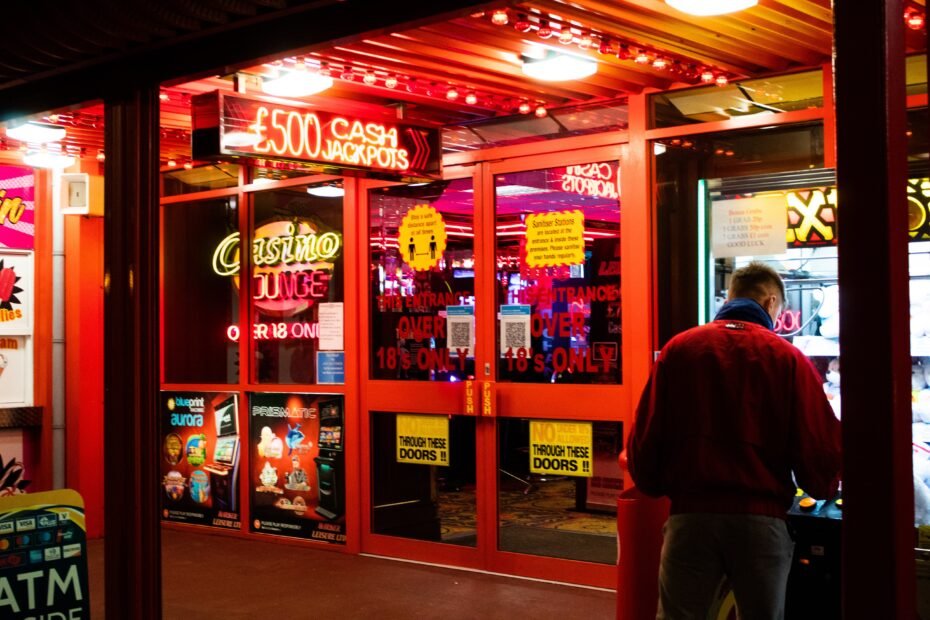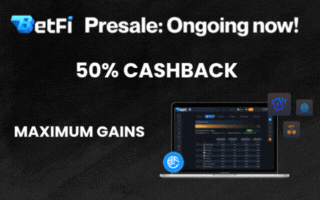Responsible Gambling Blocks: Take Control of Your Gambling Experience Today!
Have you ever found yourself caught in the thrill of gambling, only to realize you’ve spent way more than you intended? We’ve all been there. In the heat of the moment, it’s easy to get carried away. But what if your bank offered a simple way to set limits before you started playing to avoid getting in over your head? Turns out, many already do – you just have to opt in.
Gambling blocks are tools that let you restrict how much you deposit or spend on betting. You choose a daily, weekly, or monthly limit and your bank will cut you off once you hit it. No fuss, no temptation to bend the rules. GamCare, a leading charity for problem gambling, says it’s time for banks to start actively promoting these responsible gambling controls. The blocks are there if you want them, you just must ask.
So do yourself a favor and talk to your bank about setting up a gambling block. It’s a quick, easy way to make sure you’re always in the driver’s seat and avoid any unwanted surprises in your statement. Your future self will thank you.
The Importance of Responsible Gambling Blocks

As a gambler, having control over your spending is critical. That’s why responsible gambling blocks, tools that allow you to set limits on how much you deposit or bet, are so important.
Banks offer debit and credit card gambling blocks that can cap how much you spend on betting each day, week, or month. Once you reach your limit, your card is declined for further gambling transactions. These blocks give you a safety net, so you don’t get carried away in the heat of the moment.
Setting up blocks is usually free and straightforward. You choose the types of transactions you want to limit, like casino bets, lottery tickets, or online poker, and the maximum you want to spend on each. Many banks allow you to easily adjust your limits whenever you want.
While no block is 100% foolproof, they do provide an effective barrier against impulsive betting and can help ensure you only gamble what you can afford. Gambling blocks give you back control of your money and limit the potential for financial harm.
If you struggle with excessive or problem gambling, definitely take advantage of these responsible gambling tools. But even casual gamblers can benefit from the peace of mind that comes with blocks. Your bank and wallet will thank you.
Gambling blocks are an important safety measure all banks should actively promote. By raising awareness of these controls and how easy they are to set up, banks can empower their customers and encourage responsible spending habits. It’s a win-win for players and their financial institutions alike.
Protect Yourself: Learn How to Safeguard Against Online Casino Scams. Read Here to Stay Responsible in Gambling.
How Gambling Blocks Work to Curb Excessive Gambling
Gambling blocks, also known as self-exclusion tools, are mechanisms offered by banks and gambling companies that allow you to restrict how much you spend on gambling. They’re an important safeguard worth being aware of if you want to curb excessive gambling behavior.
How do they work? Basically, you choose limits on things like:
- The amount of money you can withdraw or transfer to gambling companies each day, week, or month.
- The number of transactions allowed for gambling purposes.
- Total blocking of all gambling-related transactions.
Once set, the blocks stay in place for a fixed period like 6-12 months. They give you a chance to break unhealthy habits and avoid impulse decisions you may later regret.
To set up gambling blocks, you simply contact your bank, either by phone, through their mobile app, or on their website. They’ll walk you through the options to find limits that suit your needs. Many major banks like Barclays, HSBC, Santander, and Lloyds now offer these responsible gambling tools, so there’s a good chance your bank provides them too.
Using gambling blocks isn’t a reflection of weakness or a reason to feel ashamed. They show you want to gamble more responsibly and avoid potential harm. The blocks act as a safety barrier, giving you space to reassess your limits and make better choices. Overall, they can be an effective way to curb excessive gambling in a supportive, non-judgemental way. Why not give your bank a call to learn more?
Why Awareness of Gambling Blocks Needs to Increase

Banks need to make customers more aware of the responsible gambling tools available to them, like gambling blocks. These blocks are an important safety net that can help prevent harm, yet many players don’t even know they exist.
What Are Gambling Blocks?
Gambling blocks, also known as self-exclusion schemes, allow customers to block themselves from accessing gambling websites and apps. Once a block is in place, the bank will restrict any transactions related to those gambling merchants. This makes it much harder for someone struggling with problem gambling to continue betting.
Why Awareness Matters
For these blocks to be effective, people first have to know about them. Many gamblers dealing with addiction or loss of control are unaware that their bank offers this type of program. By promoting gambling blocks, banks can educate customers and give them an opportunity to put safeguards in place before further harm occurs.
Banks should make information about responsible gambling tools like blocks prominently visible on their websites and apps, especially in sections related to gambling transactions or account management. They should also train customer service staff to inform people about these resources during relevant inquiries or conversations.
Benefits of Increased Awareness
Greater awareness of gambling blocks could help more players gamble safely and avoid the negative consequences like financial hardship, mental health issues, or damaged relationships that often come with problem gambling. For banks, promoting responsible gambling shows customers they care and are acting to prevent harm.
Overall, gambling blocks are an important mechanism for consumer protection and harm minimization. By spotlighting these tools and making information about them more accessible, banks have an opportunity to make a real difference in supporting well-being and limiting the impact of gambling addiction. The more people know about responsible gambling options, the more lives can potentially be changed for the better.
How Banks Can Raise Awareness of Gambling Block Tools
Banks are in a unique position to help raise awareness about responsible gambling tools like deposit limits, timeout periods, and self-exclusion schemes. By actively promoting these resources, banks can support player protection and encourage responsible behavior.
Educate Customers About Available Tools
Many banks offer deposit limits, timeout periods, and self-exclusion options for gambling transactions, but customers may not even realize these resources exist. Banks should make an effort to educate all account holders about responsible gambling controls through:
- Email newsletters and messaging
- Information on their website and mobile banking app
- Brochures and flyers in branch locations
- Staff training so tellers and call center employees can inform customers
Promote Self-Exclusion and Timeouts
Self-exclusion schemes and timeout periods are two of the most effective ways for players to curb excessive gambling. Banks should actively encourage customers to use these tools by:
- Highlighting them during the account opening process
- Sending periodic reminders about the option to self-exclude or take a timeout
- Making the self-exclusion and timeout process as simple as possible through online applications and 24/7 phone support
Track Usage and Make Improvements
Banks need to monitor how customers are using responsible gambling controls and look for ways to strengthen their programs. Some steps banks can take include:
- Analyzing data on the number of customers who set deposit limits, self-exclude, or take timeouts
- Surveying customers who use these tools to determine what is working and areas for improvement
- Updating controls regularly based on insights, customer feedback, and best practices
- Sharing data and collaborating with gambling support groups to better understand trends in problem gambling behavior
By raising awareness of responsible gambling tools, promoting their usage, and continually optimizing these resources, banks can play an important role in helping to minimize gambling-related harm. Overall, the goal should be empowering customers with effective controls and resources for responsible play.
The Future of Responsible Gambling: Collaboration Is Key
The future of responsible gambling depends on collaboration between all parties involved. Banks, gambling companies, regulators, and support organizations must work together to build a safety net for players.
Raise Awareness of Available Tools
Banks should actively promote responsible gambling blocks and spending controls to account holders. These options allow customers to set limits on gambling transactions, but many people simply don’t know about them. By increasing awareness, banks can empower players to make informed choices about their spending.
Refine and Expand Support Programs
Groups like GamCare provide vital support for problem gamblers, but more can be done. Additional funding and resources are needed to expand counseling services, run public health campaigns, and research new treatment options. Gambling companies should contribute a higher percentage of profits to these programs as part of their licensing agreements.
Share Data and Insights
Collectively, banks and gambling companies have access to large amounts of data on player behavior and spending patterns. By sharing anonymized data with regulators and support groups, they can help identify at-risk players and shape more effective harm minimization policies. Data sharing must be done responsibly by obtaining proper consent and protecting customers’ privacy.
Review Effectiveness Regularly
Any system seeking to promote responsible gambling must be continuously reviewed and updated. As new technologies, products, and delivery channels emerge, new potential harms may also arise. Regular audits of existing safeguards and a willingness to trial innovative new approaches will help ensure that players receive the highest level of protection, both now and in the future.
Overall, promoting responsible gambling is a shared responsibility that relies on open communication and willingness to collaborate. By working together with a common goal of harm prevention and player well-being, significant progress can be made. But this cooperation must start now.
Conclusion
So there you have it, gambling blocks are an important tool available to you as a bank customer. Even if you don’t think you have a gambling problem, these blocks provide an extra layer of security and peace of mind.
The next time you log in to your online banking or visit your local branch, ask about setting up a gambling block on your accounts. It only takes a few minutes but can provide benefits that last for years. Protecting yourself and your money has never been easier. And if you do find yourself struggling with problem gambling, the block acts as an important first step toward getting help. Don’t wait until it’s too late, take control of your accounts today and set up that block. You’ll be glad you did.


